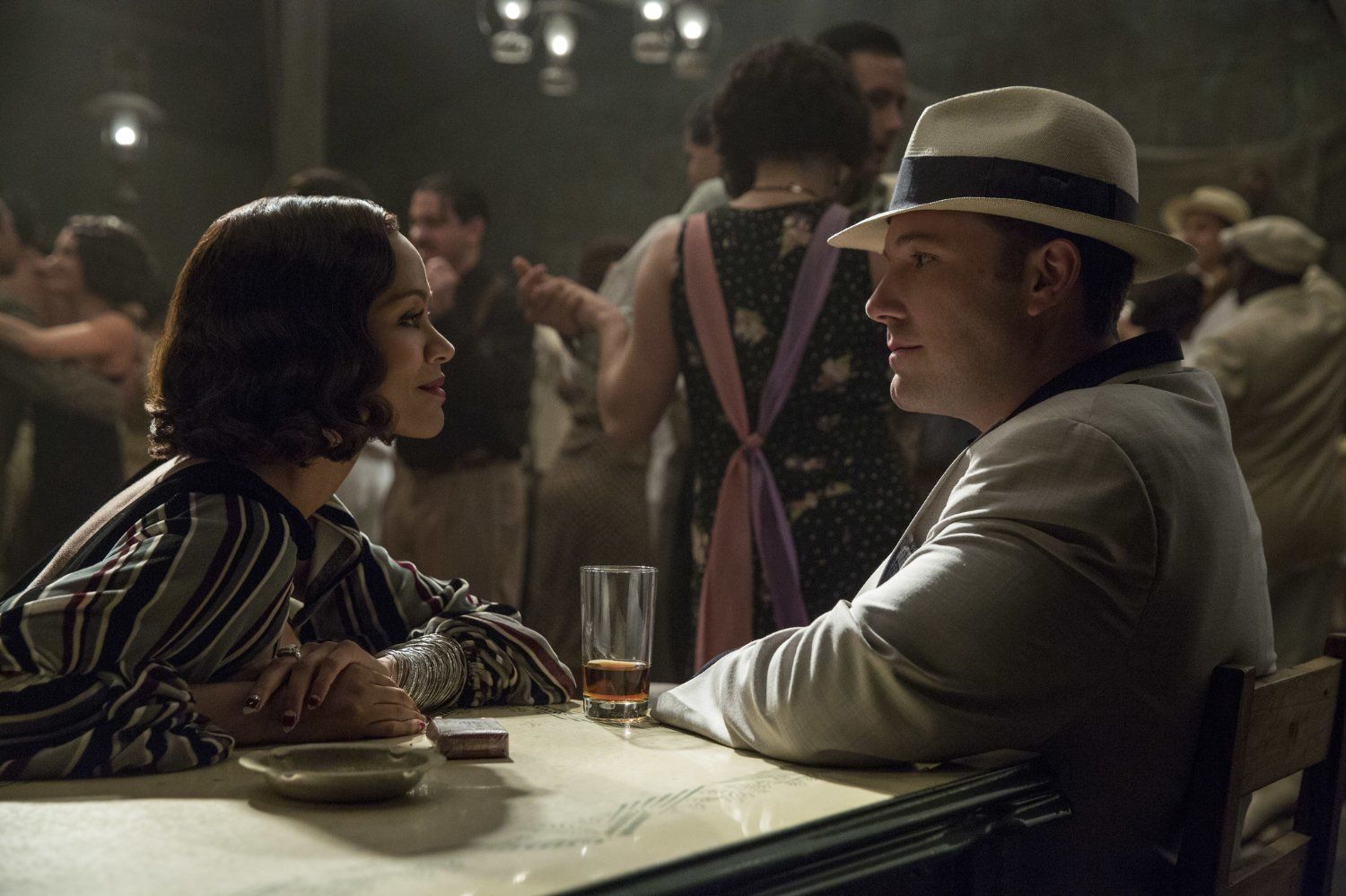When one person is simultaneously the star, screenwriter, director, and producer of a film, that immediately should set off warning bells that what you’re walking into might not be very good. Film is an inherently collaborative process, so even if one adheres to the auteur theory of filmmaking—in that the director is responsible for the entire film as an execution of their creative vision—it’s still a bad sign if someone clings to control so much that they feel they are the best person to both be in front of the camera and behind it. However, Ben Affleck has made his stamp as a director by writing starring vehicles for himself that turned out just fine, such as Our Town and Argo, so if anyone was going to pull off an adaptation of Dennis Lehane’s Live By Night as star and director, you would think it would be him. Alas and alack, the weight of this film crushes Affleck like a weary Atlas pushed down by the world.
Affleck stars as Joe Coughlin, a self-professed outlaw in Prohibition-era Boston who is betrayed by the girl he loves and left to die at the hands of her powerful gangster boyfriend, Albert White. Circumstance leaves Coughlin alive and his lady love apparently dead, so he decides to align himself with White’s greatest rival, Maso Pescatore, and heads down to Tampa to build a big enough booze and gambling racket that he may eventually weaken White’s hold on the area and ruin him.
Read more: Silence is a bold passion project brought down by self-indulgence
The best that can be said about Live By Night is that the bones of Lehane’s original story are still left largely intact, which allows brief glimpses of the novel’s rich thematic depth to shine through. Coughlin’s story is one of how discrimination, persecution, and poverty are betrayals of the American dream, and that gray morality isn’t always unjustified with facing the pressures that social prejudice can place on people. Granted, this comes from the perspective of a white man of Irish descent, which perhaps can be seen as a white savior archetype when compared to the people of color he aligns himself with, but considering that the Catholic Irish weren’t included in the notion of “whiteness” of the time, it’s a detail that’s understandable if you know the historical context. Regardless, the basic outline of the vastly superior novel is left mostly unmodified, which is just about the only thing to this adaptation’s credit.
But when it comes to actually translating this work to the screen, every single problem can be traced back to Affleck overextending himself. As the lead actor, Affleck is a vacant cipher, never giving us a glimpse at who Coughlin is as a character, nor conveying that character’s arc in any satisfying way. As screenwriter, he connects the film’s disparate scenes by telling rather than showing, interjecting with voiceover narration that lazily masks the lack of connective tissue between the film’s smaller arcs. As a director, he neglects to focus the camera’s attention on anyone but himself, so even when great performers like Zoe Saldana, Elle Fanning, and Chris Cooper are turning in good performances, they don’t get enough screentime for it to even count.
Finally, though, Affleck fails as a producer, primarily because it seems that since he was helping to bankroll the project nobody felt they could tell him “no.” Oh, you can tell that he’s trying hard to make Live By Night work, but he’s doing it alone, bearing a load that is ambitious for even a team of people, yet he takes on the brunt of it himself. If Affleck considers himself the martyr of this production, that level of sacrifice was both unnecessary and entirely avoidable. Share the load, Mr. Affleck. Your art and your ego will thank you for it.













